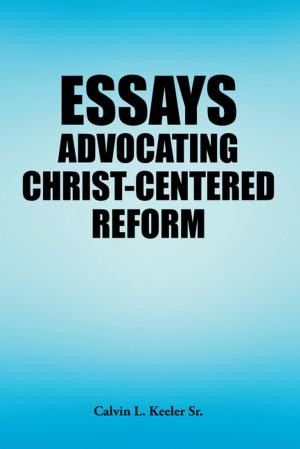Church and Politics During the English Reformation
Ecclesiology and Politics in the Writings of Stephen Marshall (1595–1655)
Nonfiction, Religion & Spirituality, Christianity, Church, Church History, Biography & Memoir, Historical| Author: | Jaretha Joy Jimena-Palmer PhD | ISBN: | 9781973603429 |
| Publisher: | WestBow Press | Publication: | November 29, 2017 |
| Imprint: | WestBow Press | Language: | English |
| Author: | Jaretha Joy Jimena-Palmer PhD |
| ISBN: | 9781973603429 |
| Publisher: | WestBow Press |
| Publication: | November 29, 2017 |
| Imprint: | WestBow Press |
| Language: | English |
This is a literary study of the seventeenth-century pamphlets and sermons delivered to the Long Parliament by Stephen Marshall, a leading English Puritan. Marshall was known as preacher to the Long Parliament and for his participation in the further reformation of the English Church in the 1640s. His understanding of the role of civil magistracy was deeply rooted in his concept of the English Reformation. He was convinced that the constitutional changes during the sixteenth-century English Reformation defined the role of civil magistrates. The King became the Supreme Head of the English Church, and the civil magistracy consisting of King-or-Queen-in Parliament had the responsibility to spearhead the reformation of the English Church. He also insisted that restoring godly preaching and teaching in every local church would eventually complete the English Reformation.
Marshall also argued that the Henrician schism paved the way for England to become a Christian Commonwealth where the Church is lodged, whose characteristic was the unity among the people of God. This implied that in England, Presbyterians, Independents, and Erastians all belonged to one body of Jesus Christ, the Head of the Church. In a Christian Commonwealth, civil magistracy was a divine institution and had the highest power of ordering and governing the church, according to Marshall. It was the civil magistracys responsibility to protect and to take care of Gods people in all godliness. And in order to do so, magistrates should be rightly informed from the Word of God.
Though Marshall showed his opposition to King Charles Is political innovation that precipitated an unfortunate war in 1642, his vision of a Christian Commonwealth where English magistracy consisting of the King-or-Queen-in-Parliament did not change. If the king could be persuaded to agree with the ecclesiastical reform Puritans proposed through Parliament, he would still be an instrument of reform.
This is a literary study of the seventeenth-century pamphlets and sermons delivered to the Long Parliament by Stephen Marshall, a leading English Puritan. Marshall was known as preacher to the Long Parliament and for his participation in the further reformation of the English Church in the 1640s. His understanding of the role of civil magistracy was deeply rooted in his concept of the English Reformation. He was convinced that the constitutional changes during the sixteenth-century English Reformation defined the role of civil magistrates. The King became the Supreme Head of the English Church, and the civil magistracy consisting of King-or-Queen-in Parliament had the responsibility to spearhead the reformation of the English Church. He also insisted that restoring godly preaching and teaching in every local church would eventually complete the English Reformation.
Marshall also argued that the Henrician schism paved the way for England to become a Christian Commonwealth where the Church is lodged, whose characteristic was the unity among the people of God. This implied that in England, Presbyterians, Independents, and Erastians all belonged to one body of Jesus Christ, the Head of the Church. In a Christian Commonwealth, civil magistracy was a divine institution and had the highest power of ordering and governing the church, according to Marshall. It was the civil magistracys responsibility to protect and to take care of Gods people in all godliness. And in order to do so, magistrates should be rightly informed from the Word of God.
Though Marshall showed his opposition to King Charles Is political innovation that precipitated an unfortunate war in 1642, his vision of a Christian Commonwealth where English magistracy consisting of the King-or-Queen-in-Parliament did not change. If the king could be persuaded to agree with the ecclesiastical reform Puritans proposed through Parliament, he would still be an instrument of reform.















